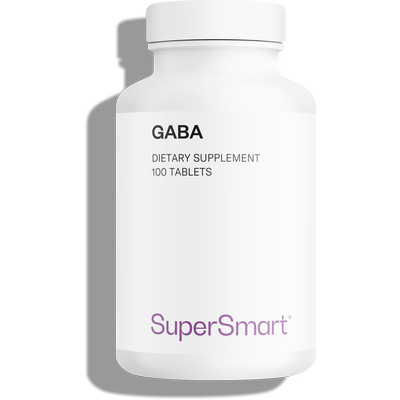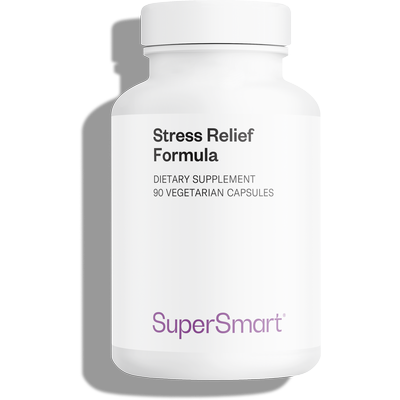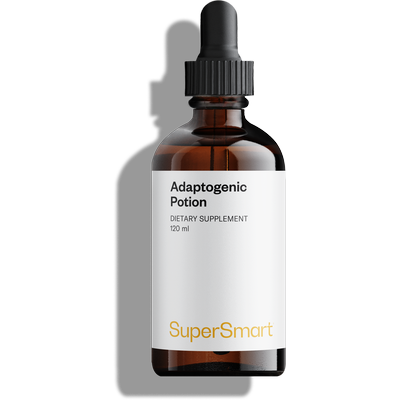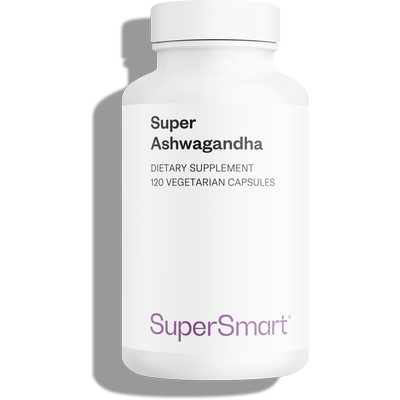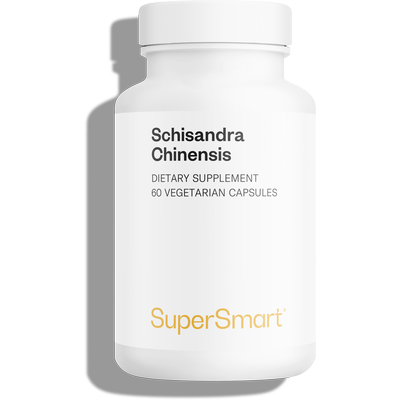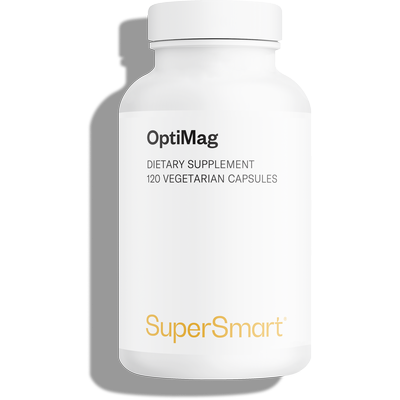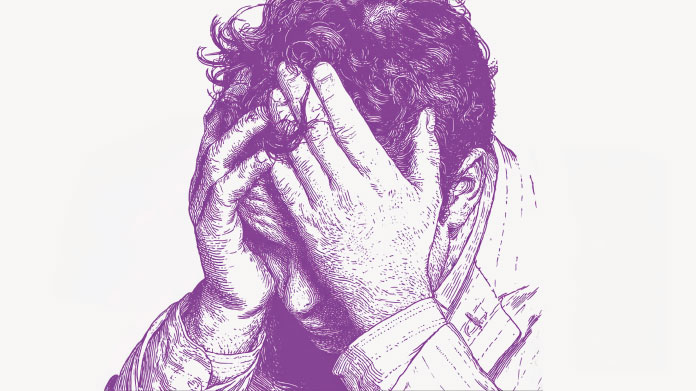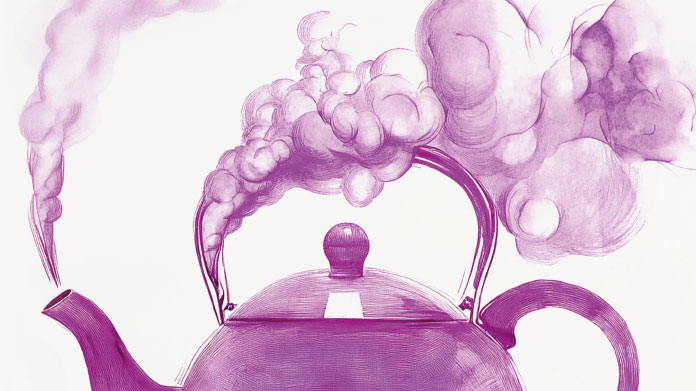What should you take to ease your stress levels?
Suffering from high levels of stress? Certain natural substances can help restore calm and serenity to your life: discover the 7 best anti-stress substances.

What exactly is stress?
Stress is a natural response which enables the body to adapt to environmental changes and challenges. Stress allows the body to react quickly in order to deal with difficult situations (1).
What are the health risks associated with stress?
When stress becomes chronic, it can lead to a number of harmful consequences: heart problems, depression, sleep disorders, digestive issues, decreased immunity (2-3)…
Various causes of stress
Stress can be caused by many factors: inter-personal conflicts, pressure at work, financial problems, lack of sleep or a complex family life (4).
Some basic tips to reduce your stress levels
Before we explore the best compounds for combatting stress, here’s a quick reminder of a few, simple strategies that can help reduce day-to-day stress :
- improve your sleep quality. Lack of sleep and disturbed nights are known to increase stress (5). Try to go to bed earlier, avoid screentime before bed and establish a proper sleep routine;
- exercise. Physical activity stimulates endorphins (feel-good hormones) and dopamine (pleasure and reward hormone), thus reducing your stress levels. Exercise also helps you sleep better! (6) ;
- breathing exercises. Deep, slow, controlled breathing can have a positive effect on the autonomic nervous system and help promote a state of relaxation (7) ;
- meditation. A practice dating back thousands of years, meditation helps combat stress and anxiety. It contributes to better emotional control and is the perfect partner to breathing exercises (8-9).
What should you take for stress: 7 natural stress-busting substances
Let’s now take a look at the 7 most effective, natural substances for combatting stress:
Ashwagandha for conquering stress
Ashwagandha is an Indian plant used for more than 3000 years in traditional Ayurvedic medicine. Its roots are rich in free amino acids, glycosides and withanolides (10).
This precious medicinal plant is known for its ability to fight stress. It is thought to act by reducing levels of cortisol (the stress hormone), influencing the GABAergic system and protecting the nervous system (11).
If you’re interested in the benefits of this plant, we’d recommend choosing an ashwagandha root supplement with a high content of withanolides but free from withaferin A. This particular withanolide is considered cytotoxic (try Super Ashwagandha, for example, made from the patented extract KSM-66®, the most widely-supported by clinical studies).
Magnesium, an essential mineral for fighting stress
Magnesium is the fourth most abundant mineral in the body. Involved in more than 300 enzymatic reactions, this essential trace-element supports normal nervous system and psychological function (12-13).
More specifically, magnesium acts as a natural stress modulator, regulating neurotransmitters that control the stress response (14). Stress actually increases the body’s consumption of magnesium, leading to potential deficiency, which is in turn conducive to maintaining stress: a truly vicious circle which needs to be broken as soon as possible!
To stock up on magnesium, eat dried beans, lentils, bananas and a few squares of dark chocolate. For a more substantial intake, take a magnesium supplement (such as OptiMag, combining 8 exceptional forms of magnesium, and offering excellent bioavailability.
Banish stress with a powerful adaptogen plant
Tulsi (Ocimum tenuiflorum) or holy basil is a herbaceous plant typically consumed in India as an infusion. It plays an important role in Ayurveda.
The long list of compounds found in this medicinal plant include eugenol, ursolic acid, camphor, vitamins A and C, as well as several minerals with beneficial effects for human health (15). Many naturopaths consider tulsi to be a potent ‘adaptogen’ – a plant that helps improve the body’s ability to adapt to and withstand various forms of stress.
It is found at high levels in certain Ayurvedic blends (such as Adaptogenic Potion, in which holy basil is combined with 9 other plant and mushroom extracts).
GABA and relaxation
Gamma-aminobutyric acid, better known as GABA, occurs naturally in the body. It is one of the central nervous system’s primary neurotransmitters.
Its most notable characteristic is its role as an inhibitor of brain activity (16). It acts as a natural ‘brake’, preventing neurons from remaining in a constant state of hyperexcitability (17).
The body is able to produce GABA from glutamic acid found in certain foods (fermented dairy products, pulses, nuts, eggs, fish, meat …) (18). There are also GABA supplements (such as the product GABA) (19).
Restore calm to your life with schisandra
Schisandra chinensis is a creeping plant familiar to the Chinese, Koreans and Russians for thousands of years. Its small, red berries have been traditionally used in Chinese medicine for their adaptogen properties (20).
How do these berries work to reduce stress? Their active compounds, particularly lignans and schisandrin, have a positive influence on cortisol regulation and promote serotonin and dopamine balance. Schisandra thus improves mental and physical resistance and helps improve stress and anxiety management (21).
This plant is traditionally consumed in the form of a decoction or tea, but it is also available as a dietary supplement (such as Schisandra Chinensis, standardised to 9% schisandrin for optimal efficacy).
Passionflower, a brilliant natural anxiolytic
Passiflora incarnata, or passionflower, is a climbing plant with distinctive colourful flowers.
It contains flavonoids, glycosides and alkaloids which increase GABA levels in the brain, helping to reduce excessive neuronal activity and producing a sensation of calm and relaxation (22-23). Passiflora’s anxiolytic properties are enhanced by mild sedative effects perfect for restoring reparative sleep.
If you’re interested in trying this plant to reduce your stress levels and improve your sleep, you can find it in supplement form or in synergistic formulations (such as Stress Relief Formula, an anti-stress product that combines passionflower with 5 other beneficial plants, including the above-mentioned schisandra).
Stress-fighting essential oils worth considering
Finally, there are some essential oils which have proved very effective at relaxing the body and eliminating stress.
They include, in particular, essential oil of lavender, which helps you relax and fall asleep. Essential oil of caraway meanwhile, is good for relaxing the body as it reduces muscle spasms. And naturopaths often mention essential oil of mandarin as having relaxing, balancing effects.
You can find these various essential oils in specific synergistic formulations specially adapted for oral use (one such example is Organic Relaxing Oil Blend).
SUPERSMART ADVICE
References
- Harvard Health Publishing - Harvard Medical School - Understanding the stress response : Chronic activation of this survival mechanism impairs health - July 6, 2020.
- American Psychological Association - Stress effects on the body - November 1, 2018. Last updated: March 8, 2023
- INRS - Santé et sécurité au travail - Stress : Effets sur la santé - Mis à jour le 07/06/2023
- WebMD - Causes of Stress - Medically Reviewed by Jennifer Casarella, MD on March 16, 2022 Written by Stephanie Watson
- Hirotsu C, Tufik S, Andersen ML. Interactions between sleep, stress, and metabolism: From physiological to pathological conditions. Sleep Sci. 2015;8(3):143-152. doi:10.1016/j.slsci.2015.09.002
- WebMD - Exercise and Depression - Medically Reviewed by Smitha Bhandari, MD on April 01, 2022 Written by Debra Fulghum Bruce, PhD
- Kevin Yackle, Lindsay A. Schwarz, Kaiwen Kam, Jordan M. Sorokin, John R. Huguenard, Jack, L. Feldman, Liqun Luo, Mark A. Krasnow. Breathing control center neurons that promote arousal in mice. 2017, American Association for the Advancement of Science.
- Sharma H. Meditation: Process and effects. Ayu. 2015;36(3):233-237. doi:10.4103/0974-8520.182756
- Innes KE, Selfe TK, Brown CJ, Rose KM, Thompson-Heisterman A. The effects of meditation on perceived stress and related indices of psychological status and sympathetic activation in persons with Alzheimer's disease and their caregivers: a pilot study. Evid Based Complement Alternat Med. 2012;2012:927509. doi:10.1155/2012/927509
- National Library of Medicine - Afr J Tradit Complement Altern Med. 2011; 8(5 Suppl): 208–213. Published online 2011 Jul 3. doi: 10.4314/ajtcam.v8i5S.9 - An Overview on Ashwagandha: A Rasayana (Rejuvenator) of Ayurveda - Narendra Singh, Mohit Bhalla, Prashanti de Jager, and Marilena Gilca
- Speers AB, Cabey KA, Soumyanath A, Wright KM. Effects of Withania somnifera (Ashwagandha) on Stress and the Stress- Related Neuropsychiatric Disorders Anxiety, Depression, and Insomnia. Curr Neuropharmacol. 2021;19(9):1468-1495. doi: 10.2174/1570159X19666210712151556. PMID: 34254920; PMCID: PMC8762185.
- Rude RK. Magnesium. In: Coates PM, Betz JM, Blackman MR, Cragg GM, Levine M, Moss J, White JD, eds. Encyclopedia of Dietary Supplements. 2nd ed. New York, NY: Informa Healthcare; 2010:527-37.
- National Library of Medicine - Magnesium Status and Stress: The Vicious Circle Concept Revisited - Nutrients. 2020 Dec; 12(12): 3672. - Published online 2020 Nov 28. doi: 10.3390/nu12123672 - Gisèle Pickering, André Mazur, Marion Trousselard, Przemyslaw Bienkowski, Natalia Yaltsewa, Mohamed Amessou, Lionel Noah and Etienne Pouteau.
- Magnesium Status and Stress: The Vicious Circle Concept Revisited - Gisèle Pickering, André Mazur, Marion Trousselard, Przemyslaw Bienkowski, Natalia Yaltsewa, Mohamed Amessou, Lionel Noah and Etienne Pouteau6 - Nutrients. 2020 Dec; 12(12): 3672. -Published online 2020 Nov 28. doi: 10.3390/nu12123672
- Pattanayak P, Behera P, Das D, Panda SK. Ocimum sanctum Linn. A reservoir plant for therapeutic applications: An overview. Pharmacogn Rev. 2010 Jan;4(7):95-105. doi: 10.4103/0973-7847.65323. PMID: 22228948; PMCID: PMC3249909.
- Allen MJ, Sabir S, Sharma S. GABA Receptor. [Updated 2022 Feb 17]. In: StatPearls [Internet]. Treasure Island (FL): StatPearls Publishing; 2022 Jan-. Available from: https://www.ncbi.nlm.nih.gov/books/NBK526124/
- Jie F, Yin G, Yang W, Yang M, Gao S, Lv J, Li B. Stress in Regulation of GABA Amygdala System and Relevance to Neuropsychiatric Diseases. Front Neurosci. 2018 Aug 14;12:562. doi: 10.3389/fnins.2018.00562. PMID: 30154693; PMCID: PMC6103381.
- Sahab NRM, Subroto E, Balia RL, Utama GL. γ-Aminobutyric acid found in fermented foods and beverages: current trends. Heliyon. 2020 Nov 16;6(11):e05526. doi: 10.1016/j.heliyon.2020.e05526. PMID: 33251370; PMCID: PMC7680766.
- Cui Y, Miao K, Niyaphorn S, Qu X. Production of Gamma-Aminobutyric Acid from Lactic Acid Bacteria: A Systematic Review. Int J Mol Sci. 2020 Feb 3;21(3):995. doi: 10.3390/ijms21030995. PMID: 32028587; PMCID: PMC7037312.
- HANCKE JL, BURGOS RA, AHUMADA F. Schisandra chinensis (Turcs.) Fitoterapia. 1999;70(5):451‑71.
- Schisandra chinensis and its phytotherapeutical applications - Michal Rybnikář, Karel Šmejkal, Milan Žemlička - PMID: 31431019
- Akhondzadeh S, Naghavi HR, Vazirian M, Shayeganpour A, Rashidi H, Khani M. Passionflower in the treatment of generalized anxiety: a pilot double-blind randomized controlled trial with ox. J Clin Pharm Ther. 2001 Oct;26(5):363-7. doi: 10.1046/j.1365-2710.2001.00367.x. PMID: 11679026.
- Janda K, Wojtkowska K, Jakubczyk K, Antoniewicz J, Skonieczna-Żydecka K. Passiflora incarnata in Neuropsychiatric Disorders-A Systematic Review. Nutrients. 2020 Dec 19;12(12):3894. doi: 10.3390/nu12123894. PMID: 33352740; PMCID: PMC7766837.
Keywords
2 Days
Good quality product and customer service.
So far, I'm liking this product, and the customer service was very good.
ELZL
9 Days
The products I use are excel·lent
The products I use are excel·lent
ROSAS Josep Maria
17 Days
Delivery is prompt and I never saw a…
Delivery is prompt and I never saw a quality problem with the manufacturing. It is not possible to assess efficacy on a personal basis, since too many factors come into play. Efficacy can only be assessed statistically with a sufficient number of cases.
Roger De Backer
18 Days
I collaborates with the Supersmart…
I collaborates with the Supersmart more than 10 years. Every thing is going good. Quality of the things is good. Delivery comes in time. Five stars definitely !!!
Oleksiy
18 Days
All good
Simple, frictionless site, easy ordering, good delivery updates and execution.
Chris Robbins
20 Days
I feel better
I feel better
Peter Ammann
20 Days
Prompt delivery
Prompt delivery
JAKUB Radisch
22 Days
My new go-to for top quality supplements!
I am buying more and more of my supplements from this superb, high quality company. Cannot recommend it enough. Plus, excellent customer service with a quick, helpful team and speedy deliveries. Highly recommend Supersmart!
Cecilie H.
25 Days
SUPERSMART WHAT ELSE👍
SUPERSMART WHAT ELSE👍
DIEDERLE Christophe
28 Days
Excellent quality products with…
Excellent quality products with innovative formulas, as someone who has been suffering with acid reflux, these supplements have been lifesavers.
Oriana Moniz
28 Days
high quality supplement!
high quality supplement!
GALANT
29 Days
Good service prompt delivery
Good service prompt delivery
Mrs Marcella Reeves
34 Days
I like your clear explanation
I like your clear explanation. And how to make a choice of products for a specific health problem
Ingrid
40 Days
Great product and it arrives quickly.
Great product and it arrives quickly.
SOMMARIVA Gianni
41 Days
Excellent products and fast service.
Excellent products and fast service. What do we need more?
Margarida

